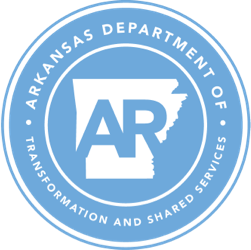Job Class Search
Job Details
DPS CHIEF INFORMATION OFFICER
The Arkansas State Police (ASP) Chief Information Officer is responsible for all aspects of
the development, implementation, and maintenance of the agency's information technology
(IT) system. This position is governed by state and federal laws and agency policy.
Class Code:
D103C
Job Grade:
IT11
Special Job Requirements:
0
Typical Functions:
Directs the activities of a professional, technical, and administrative support staff through
subordinate supervisors including: interviewing, hiring, terminating, reviewing performance
evaluations conducted by subordinates, evaluating the performance of subordinates, and
reviewing and approving/disapproving a variety of actions, policies, and procedures
recommended by subordinates, preparing short and long range plans, preparing,
implementing, and monitoring operational and biennial budgets.
Coordinates team operations with other functions within the agency to ensure the
development and implementation of operational procedures.
Analyzes relevant new or revised laws and executive policies and coordinates with system
users to evaluate current automated systems and determines what changes may be
necessary to meet user needs and ensures compliance with statutory requirements.
Directs the development of new or revised applications with appropriate entities by providing
information on desired results, data base components, informational flow, interfaces with
other systems, and screen and report formats.
Evaluates the capacity and capabilities of the automated administrative system, investigates
technological advances and the compatibility, availability, and costs of products, and
develops short and long-range plans for the acquisition of computer hardware and software
to support current and future statewide operations.
Negotiates and develops vendor contracts for recommendation to senior management staff,
designates performance standards and deliverables, and monitors adherence to contract
specifications.
Plans the implementation of diverse, new and/or modified software to ensure compatibility
with existing system and testing requirements and recommends and enforces standards and
procedures.
Establishes schedules and priorities for system development and monitors development
stages to ensure the validity of data and reports and adherence to deadlines.
Resolves user or information system problems not resolved at a lower level by investigating
the source of the problem and initiating corrective action including contacting vendors if
appropriate.
Attends legislative committee meetings to respond to questions and coordinates with
legislative staff on the drafting and reviewing of legislation affecting statewide administrative
processes.
Implements special projects by assigning work activities, monitoring progress through
supervisory personnel, and preparing status reports or making presentations as required.
Performs other duties as assigned.
Knowledge, Abilities, and Skills:
Knowledge of the application of systems analysis and programming in automated
information systems.
Knowledge of the overall IT operating environment including hardware, applications, data
base administration, and communications systems.
Knowledge of the principles and practices of organizational management.
Ability to plan work unit objectives and operational activities and to assign and direct the
work of subordinates.
Ability to assess agency IT system needs and participate in the development of short and
long-range plans for operational requirements.
Ability to read and interpret technical materials and prepare detailed written reports, bid
specifications, documentation, and procedures.
Ability to install, modify, and maintain systems hardware and software.
Ability to prepare and present oral and written technical information and reports.
Ability to coordinate the development, implementation, and maintenance of information
systems.
Ability to research, analyze, evaluate data, situations, project outcomes, and resolve
problems.
Ability to work with senior state officials from both the executive and legislative branches of
state government.
Ability to communicate orally and in writing.
Minimum Qualifications:
The formal education equivalent of a bachelor’s degree in computer science, mathematics,
or a related field; plus six years of experience in information technology, systems application
and analysis, or computer support, including two years of supervisory experience.
Required Certificates:
0
Exempt:
E

